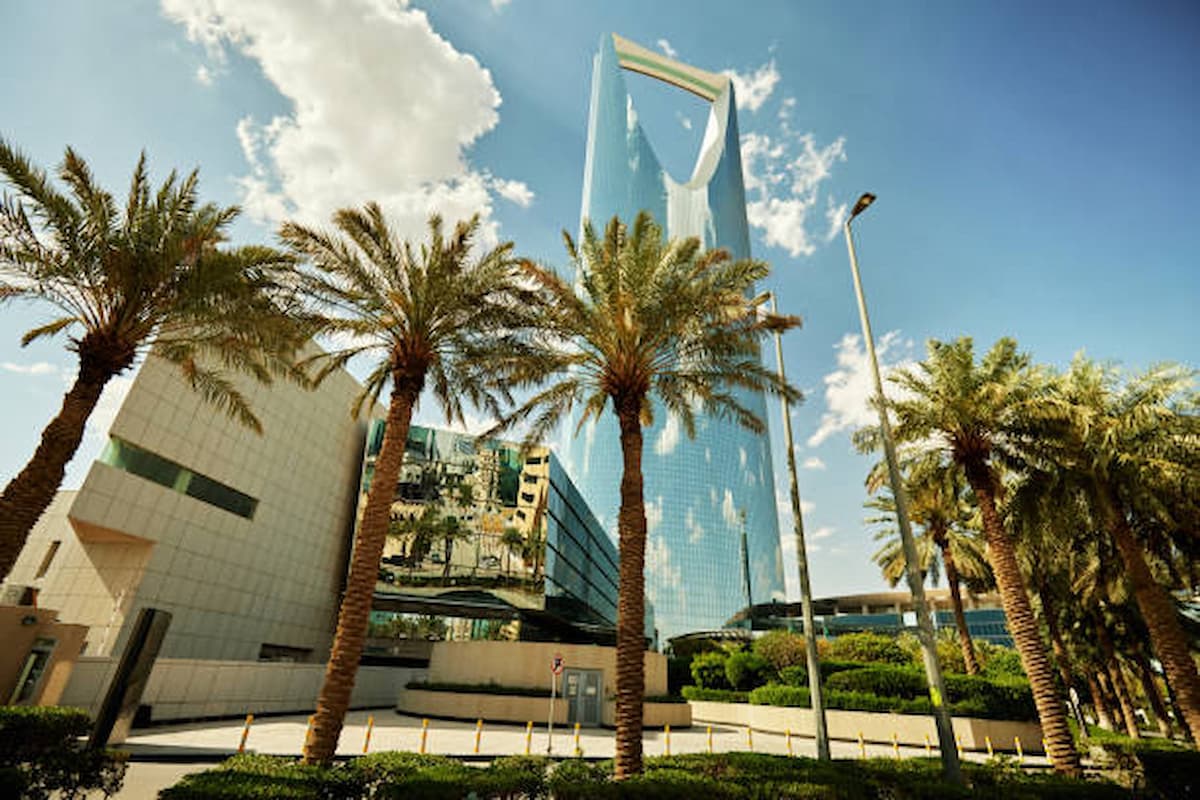Expanding your business into Saudi Arabia can open the door to one of the Middle East’s most dynamic markets, this guide provides a step-by-step overview of how to set up a foreign branch in Saudi from legal requirements and regulatory approvals to practical insights on local operations.
step-by-step: how to setup a foreign branch in saudi
1-Determine the Right Business Structure
Before proceeding, decide whether a branch office or a limited liability company (LLC) is more suitable for your needs,a branch office allows 100% foreign ownership but must carry out the same activities as the parent company.
2-Obtain a Foreign Investment License from MISA
The first major step is to apply for a license through the Ministry of Investment of Saudi Arabia (MISA),requirements include:
- A copy of the parent company’s commercial registration.
- Financial statements for the last fiscal year (audited).
- A board resolution approving the establishment of the branch.
- Power of attorney for a local representative.
3-Register with the Ministry of Commerce (MoC)
Once licensed by MISA, you must register the branch with the Ministry of Commerce to receive a Commercial Registration (CR).
4-Register with Other Government Authorities
After obtaining the CR, you must:
- Register with the General Authority of Zakat and Tax (GAZT) for tax and VAT purposes.
- Enroll with GOSI (General Organization for Social Insurance) if you will employ staff.
- Register with the Chamber of Commerce in your region.
5-Open a Bank Account
You’ll need to open a corporate bank account in Saudi Arabia using the commercial registration and other official documents.
6-Arrange for Office Space
Saudi regulations require a physical address for your branch. You must provide a lease agreement as part of the documentation process.
7-Apply for Visas and Saudization Compliance
If you plan to employ foreign nationals, you must apply for work visas and adhere to Saudization requirements (employing a certain percentage of Saudi nationals).

Navigating the Challenges: What You Need to Know Before Entering Saudi Arabia
1.Navigating Complex Legal and Regulatory Requirements
Saudi Arabia’s business regulations are governed by a mix of modern laws and traditional systems,the legal framework can be complex for foreign investors who are unfamiliar with it.
Challenges:
- Licensing: Obtaining the right permits and licenses can take time and effort, Businesses must apply for licenses from various government entities such as the Ministry of Investment (MISA) and the Ministry of Commerce.
- Regulations: Foreign companies must comply with local laws regarding employment, tax, and industry-specific regulations.
How to Overcome:
- Hire Local Legal Experts: Consult with local law firms or business advisors who are well-versed in Saudi regulations to help guide you through the legal requirements.
- Stay Updated on Changes: Keep track of the Kingdom’s evolving regulations, especially in light of Vision 2030, which is changing the landscape of various industries.
2.Cultural Sensitivity and Adaptation
Understanding the cultural landscape of Saudi Arabia is crucial for establishing successful relationships and avoiding misunderstandings.
Challenges:
- Business Etiquette: The business environment in Saudi Arabia places a strong emphasis on personal relationships, trust, and respect.
- Cultural Norms: Gender roles, religious practices, and traditional values are deeply ingrained in daily life and business practices.
How to Overcome:
- Invest in Cultural Awareness Training: Familiarize yourself with Saudi business customs, such as the importance of face-to-face meetings, the role of family in business, and understanding prayer times.
- Hire Local Talent: Employing Saudi nationals not only helps with compliance (Saudization) but also offers invaluable cultural insights.
3.Compliance with Saudization Laws
Saudization is a key policy aimed at increasing employment opportunities for Saudi nationals,while this policy supports the local workforce, it can pose challenges for foreign businesses.
Challenges:
- Hiring Quotas: There are requirements for companies to hire a certain percentage of Saudi nationals depending on the industry and business size.
- Costs: Compliance with Saudization laws may require businesses to invest in training and developing local talent.
How to Overcome:
- Plan for Saudization from the Start: Ensure your hiring strategy incorporates Saudi nationals, and invest in training and development programs.
- Work with Local HR Experts: Collaborate with HR consultants who specialize in navigating Saudization and workforce requirements.
4.Understanding the Economic Environment
The Saudi economy has been undergoing significant transformation, moving away from oil dependency and into sectors like technology, tourism, and renewable energy,while this offers growth potential, it can also be a challenge for foreign businesses that are unfamiliar with the new landscape.
Challenges:
- Diversifying Industries: While the energy sector remains important, other sectors like entertainment, healthcare, and technology are rapidly growing, creating both competition and opportunities.
- Economic Fluctuations: The economic environment in Saudi Arabia can be influenced by global oil prices, which may affect consumer spending and market stability.
How to Overcome:
- Conduct Market Research: Research your industry and determine the demand, competition, and opportunities in Saudi Arabia.
- Be Flexible: Stay adaptable and be ready to pivot your strategy as the Kingdom's economic priorities evolve under Vision 2030.
5.Bureaucratic Challenges and Administrative Processes
Saudi Arabia’s bureaucratic system can sometimes be slow, and navigating it may seem cumbersome for those unfamiliar with the processes.
Challenges:
- Paperwork and Approvals: The process of obtaining permits, approvals, and completing administrative tasks can take time, especially for foreign companies.
- Language Barriers: Arabic is the official language, and many official processes and documentation are in Arabic, which can create a barrier for non-Arabic speakers.
How to Overcome:
- Partner with Local Agencies: Use local consultants or service providers to handle the bureaucracy and administrative tasks, as they have the necessary experience to streamline processes.
- Ensure Proper Translation: Work with certified translation services to ensure all your documentation is accurate and compliant with local laws.
6.Economic and Political Stability
Although Saudi Arabia has enjoyed political and economic stability for many years, it’s important for businesses to stay informed about any geopolitical risks that could affect their operations.
Challenges:
- Regional Tensions: Saudi Arabia's location in the Middle East means it can be affected by regional tensions or changes in trade relationships.
- Shifting Alliances: Business conditions can be influenced by the Kingdom’s relations with neighboring countries and global superpowers.
How to Overcome:
- Monitor Geopolitical Developments: Stay updated on regional news and trends that could affect your business operations in the Middle East.
- Risk Management Strategies: Develop comprehensive risk management strategies to mitigate potential disruptions caused by political instability.
7.Establishing a Strong Network and Relationships
Building a strong network is critical to doing business successfully in Saudi Arabia. In the Kingdom, business decisions are often made based on personal trust and long-term relationships. Understanding this can help you navigate the local market with ease.
Challenges:
- Relationship-Based Business Culture: Networking and building relationships with key decision-makers and stakeholders can take time,trust plays a significant role in securing partnerships and contracts.
- Long Decision-Making Process: Business deals often require multiple rounds of discussions, approvals, and meetings, which can slow down the decision-making process.
How to Overcome:
- Engage with Local Chambers of Commerce: Establish connections with the Saudi Chamber of Commerce and other business networks to gain access to influential industry players.
- Participate in Trade Events and Conferences: Attend industry events and conferences to meet potential partners, clients, and government officials.
- Be Patient and Persistent: Understanding that relationship-building takes time is key to managing expectations and fostering goodwill in the Saudi market.
8.Competitive Market Landscape
Saudi Arabia's rapidly growing economy means that there are both opportunities and fierce competition,while the country offers many sectors for foreign investment, competition from local and regional players is growing steadily, especially as Vision 2030 attracts more global interest.
Challenges:
- Market Saturation in Certain Sectors: Some industries, like retail and construction, may have numerous established players, making it harder for newcomers to break through.
- Competing with Local Companies: Local businesses may have better access to capital, a deeper understanding of the market, and more established networks.
How to Overcome:
- Differentiate Your Offering: Focus on what makes your products or services unique and tailor your offerings to meet the specific needs of the Saudi market.
- Invest in Innovation and Technology: Leveraging cutting-edge technologies or offering innovative solutions will help you stand out in a competitive market.
- Collaborate with Local Partners: Joint ventures with established local businesses can provide access to their networks, customer base, and market insights.

Unlocking Business Success: What Makes Your Foreign Company Thrive in Saudi Arabia
1. Aligning with Vision 2030
- Focus on sectors prioritized by the government (e.g., tech, renewable energy, tourism, education).
- Show commitment to innovation, sustainability, and economic diversification.
2. Deep Market Understanding
- Conduct thorough market research to tailor products/services to local needs.
- Understand consumer behavior, preferences, and business etiquette in Saudi Arabia.
3. Regulatory Compliance
- Ensure full compliance with Saudi laws, labor regulations, and Saudization requirements.
- Keep up with legal updates from MISA, the Ministry of Commerce, and other authorities.
4. Building Strong Local Relationships
- Develop partnerships with local companies, government bodies, or advisors.
- Business in Saudi Arabia is relationship-driven — trust and long-term cooperation matter.
5. Embracing Saudization
- Hire and empower Saudi nationals.
- Invest in training programs to meet Saudization targets and contribute to national development.
6. Strategic Location and Office Setup
- Choose a business location that suits your industry — Riyadh, Jeddah, or the Eastern Province.
- Establish a physical presence with a well-staffed office to boost credibility.
7. Cultural Adaptability
- Respect Saudi culture, traditions, and communication styles.
- Adjust branding, marketing, and services to resonate with local values.
8. Digital Transformation and Innovation
- Utilize smart technologies and e-government services.
- Offer digital solutions and seamless customer experiences to stay competitive.
Read also: Business Setup for Foreigners in Saudi Arabia.
What makes businesssetup.sa your best partner ?
- Deep Local Expertise: BusinessSetup.sa has a seasoned team with in-depth knowledge of Saudi regulations, culture, and market dynamics , ensuring your setup process is smooth, compliant, and strategic.
- End-to-End Support: From acquiring MISA licenses to handling commercial registration, visa processing, and office setup, it offers a full suite of services tailored to foreign investors.
- Proven Track Record: With a portfolio of successfully launched foreign businesses across various sectors, it is trusted by global brands and entrepreneurs alike.
- Personalized Consultation: Every business is unique. We take the time to understand your goals and industry, offering solutions that align with your expansion strategy.
- Fast and Efficient Processes: Navigating bureaucracy can be time-consuming. BusinessSetup.sa streamlines the process to save you time and avoid delays.
- Local Partnership Network: Gain access to a network of legal advisors, tax consultants, HR professionals, and industry experts
- Commitment to Your Growth: we stay with you beyond registration — supporting your business growth with ongoing advisory and compliance services.
- Transparent Pricing and No Hidden Costs: You’ll receive a detailed breakdown of services with no surprise fees ,helping you plan your investment with confidence.
- Bilingual Support and Communication: Their multilingual team communicates fluently in Arabic and English, bridging cultural and language gaps to ensure clarity at every step.

FAQs about how to setup a foreign branch in saudi
What is the Cost of Opening a Company in Saudi Arabia?
From 20,000 SAR for simple setups, up to 600,000+ SAR for full foreign-owned branches, depending heavily on your sector and city.
What is SAGIA?
SAGIA stands for Saudi Arabian General Investment Authority.
It was the government body responsible for managing and promoting foreign investment in Saudi Arabia.
What is MISA Saudi?
In 2020, SAGIA was rebranded and became part of a new ministry called MISA — Ministry of Investment of Saudi Arabia.
In short:
- Role: They issue licenses that allow foreign companies to invest, open branches, or set up new businesses inside Saudi Arabia.
- If you're a foreign investor wanting to open a company or branch in Saudi Arabia, you must first apply for a license through MISA (formerly SAGIA).
Don’t navigate the process alone. Take action today and let our experts motaded team guide you every step of the way to ensure your business thrives in Saudi Arabia.